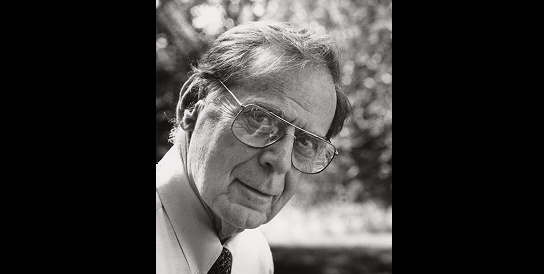Morton Deutsch passed away at 97 years old. A brilliant social psychologist but first of all, one of the founding fathers of the field of conflict resolution. Everyone working in this domain owes him something. Some of us at PIN had close relations with him such as Jeffrey Rubin, former PIN Steering Committee member, who was his PhD student. I personally met him for the first time in the early seventies. I was a young researcher and I had the privilege to attend his seminar and benefit from his intellectual radiance. Later on, I was associated to a book gathering essays inspired by his work (Bunker and Rubin: Conflict, Cooperation and Justice. Jossey-Bass publishers, 1995). Much more recently I was again associated to another of his remarkable initiatives, a summary of what is known on Conflict Resolution (Deutsch, M., Coleman, P. T., & Marcus, E. C. The Handbook of Conflict Resolution: Theory and Practice ,3rd ed.: Jossey-Bass,2014). Inexhaustible apostle of conflict resolution, Mort Deutsch had a fascinating life. After the Japanese attack on Pearl Harbor he joined the US Air Force as a psychologist. Then, as a navigator, he participated to thirty bombing missions over Nazi Germany. At the end of the war he studied at MIT under the mentoring of Kurt Lewin for his Ph.D. The major institution where he found an intellectual home was Teachers College, at Columbia University. There he published two important works, The Resolution of Conflict (1973) and Distributive Justice (1985) and became known as an authority in the fields of conflict resolution, social justice, intergroup relations, and social psychology. In 1986, he founded the International Center for Cooperation and Conflict Resolution (ICCCR) at Columbia.
Mort Deutsch has conducted pioneering studies on cooperation and competition leading to ground breaking insights. The impact of his work was not only theoretical but also practical. He has, for instance, provided a framework for several US - Soviet negotiations, and for the peaceful transition from Communist rule in Poland in 1989.
Mort Deutsch’s work in the field has ranged from experimental studies - as in The Resolution of Conflict - to policy orientated works such as Preventing World War III – and ultimately to a compendium of the current state of knowledge in the domain with The Handbook of Conflict Resolution; Theory and Practice. Mort has passed away but his achievements will stay as an essential milestone in the development of the field of conflict resolution. He will remain an inspirational force to all of us. This obituary originally appeared in PIN Points issue 44 you can find the magazine here.
